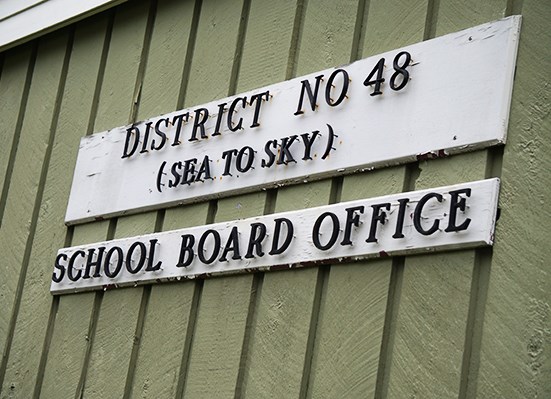The controversial annual Fraser Institute British Columbia school rankings are out, but a local school superintendent gives the report card a failing grade.
The 2015 secondary school report card, released by the right-wing think tank late last week, placed Howe Sound Secondary 165 out of the 289 high schools in the province. The school earned a 5.7 out of 10 for the 2013-14 year, down from its previous year rank of 6.5. The school’s five-year overall ranking was 5.6.
The figures for secondary schools are calculated by assessing provincial exam results, grade-to-grade transition rates and graduation rates, according to the report.
Private schools were at the top of the secondary charts again this year, with two Vancouver private girls’ schools, York House and Little Flower Academy, sharing top spot.
The elementary school rankings, released earlier this month, included only two Squamish schools: Valleycliffe Elementary and Squamish Elementary.
Valleycliffe ranked 389 out of the province’s 978 elementary schools, earning a 6.4 out of 10. The school’s five year ranking is 7.4 out of 10.
Squamish Elementary was ranked 557 in the province and earned a 5.7 out of 10, which is the highest ranking it has earned in the last five years. The school’s five-year ranking is 5.2.
Six Vancouver private elementary schools shared first place in the province.
For elementary school results, the institute uses test scores from the province-wide Grade 4 and Grade 7 Foundation Skills Assessment (FSA) exams.
The whole idea of the Fraser Institute report cards rankles Lisa McCullough, superintendent of schools for the Sea to Sky school district. McCullough said the school district has one of the highest participation rates on the FSAs in the province, which skews the marks when compared with other districts, which may not have all their students involved.
McCullough said she objects to the rankings themselves. “The concept of the Fraser Institute ranking schools with no context and measuring only the one thing, which is what they measure during that 90-minute test. It is simply not informative of what our students know and can do,” she said.
“When it is not informative, it is unethical, it is unhelpful, it really begs the question of why they do it and why people pay attention to it.”
One of the authors of the report card, not surprisingly, strongly disagrees. “The assessments are valuable to the children and the parents themselves because they will identify weaknesses and so forth,” said Peter Cowley, director of school performance studies at the Fraser Institute.
He laughed at the suggestion that schools should not be ranked. “Why do you have a trophy case? Trophy cases are emblematic of winners and dismissed losers. Losers don’t get into the trophy case,” he said. “If they really believed that comparisons between people are demeaning, useless, archaic, why on Earth would they encourage kids to learn how to be the best you can be by competing on the track? … I mean it is absolutely nuts to say there is no value in competitive comparison.”




